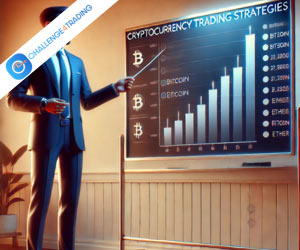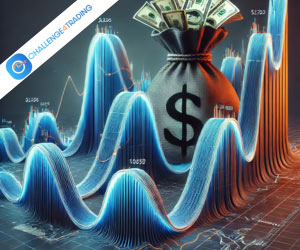
In today’s interconnected world, various types of global events play a crucial role in shaping the state of stock markets. These events can range from economic policies, natural disasters, and geopolitical tensions to technological advancements. The intricate web of these dynamic events acts as catalysts that can trigger significant market fluctuations at a moment’s notice. In this volatile environment, investors must stay informed about what’s happening worldwide to navigate the complexities of financial markets smoothly.
Global factors affecting the stock market
A wide spectrum of global events influences the stock market, causing rapid shifts in market valuations and investor sentiment. These events significantly impact the landscape in which companies operate, from consumer demands to supply chains and more. Understanding these factors helps investors make the best decisions for their capital and future.
Geopolitical tensions
Conflicts and trade wars can disrupt global trade and supply chains, causing market volatility. For example, heightened tensions between major economies can lead to tariffs and sanctions, increasing costs for companies and reducing their profit margins, which in turn affects stock prices. The trade conflict between the U.S. and China, for instance, has led to significant fluctuations in the technology and manufacturing sectors as investors react to announcements of new tariffs or trade restrictions.
Economic indicators
Data on unemployment, GDP growth, and inflation rates influence investor confidence and market trends. Positive indicators can boost market optimism and drive up stock prices, while negative indicators can lead to fears of economic downturns, causing sell-offs. For instance, a higher-than-expected unemployment rate might trigger a market sell-off as investors anticipate weaker consumer spending and corporate earnings. Staying informed about economic indicators is crucial for making timely and informed trading decisions.
Natural disasters
Events like hurricanes, earthquakes, or pandemics can disrupt economies and industries, leading to market uncertainty. Such disasters can damage infrastructure, halt production, and reduce consumer spending, all of which negatively impact the stock market. The COVID-19 pandemic, for example, caused widespread panic selling and sharp declines in stock prices across virtually all sectors, especially those directly impacted by lockdowns and travel restrictions.
Government policies
Changes in regulations, tax laws, or fiscal policies can directly affect company profitability and market performance. For instance, a sudden increase in corporate taxes can reduce after-tax earnings, leading to lower stock prices. Conversely, favorable policies like subsidies can boost specific sectors. For example, government subsidies for renewable energy can lead to significant gains in the stocks of companies involved in solar and wind energy.
Technological advancements
Innovations can disrupt industries, creating new market leaders and rendering old business models obsolete. Companies that adapt and lead in technological advancements can see their stock prices soar, while those that fail to innovate may experience declines. For instance, the rise of electric vehicles has significantly impacted traditional automakers, while companies like Tesla have seen substantial stock price increases due to their technological leadership.
Examples of global events impacting stock markets
Various global events have the potential to significantly impact stock markets, shaping investor sentiment and influencing trading patterns. From geopolitical conflicts to economic indicators and corporate developments, these events can trigger volatility, uncertainty, and shifts in market dynamics. Understanding how these events unfold and their implications for different sectors and asset classes is crucial for investors navigating the complexities of today’s interconnected financial markets.
U.S.-Iran conflict and U.S stock market crashing (2020)
The U.S.-Iran conflict in 2020 heightened market uncertainty, causing increased volatility and erratic price movements in stocks, particularly in sectors sensitive to geopolitical instability such as energy, defense, and aerospace. Investors reacted swiftly to any escalations or de-escalations in tensions, with stock prices often swinging based on geopolitical headlines. Moreover, the uncertainty surrounding the conflict led to a flight to safety, with investors flocking to assets perceived as havens, such as gold and government bonds, while reducing exposure to riskier equities.
COVID-19 pandemic (2020)
The COVID-19 pandemic had profound and immediate effects on global stock markets, triggering widespread panic selling and sharp declines in stock prices across virtually all sectors. Sectors directly impacted by lockdowns and travel restrictions, such as airlines, hospitality, and retail, experienced severe downturns, while sectors benefiting from changing consumer behaviors, such as technology, e-commerce, and healthcare, saw substantial gains. Investor sentiment remained highly reactive to pandemic-related news, driving heightened volatility and rapid shifts in market trends.
European central bank’s stimulus measures (2020)

The European Central Bank’s (ECB) stimulus measures in response to the COVID-19 pandemic had a pronounced impact on stock markets, primarily through their influence on interest rates and liquidity conditions. Lower interest rates encouraged investors to seek higher returns in risk assets like stocks, leading to rallies in equity markets. Additionally, the ECB’s bond purchases exerted downward pressure on bond yields, making equities more attractive relative to fixed-income securities. Positive reactions to ECB stimulus announcements often translated into broad-based stock market gains, especially in sectors sensitive to economic recovery.
U.S. unemployment figures amid COVID-19 (2020)
U.S. unemployment data releases during the COVID-19 pandemic directly affected stock market sentiment, reflecting the labor market’s critical role in economic health and consumer spending. Higher-than-expected unemployment figures typically led to declines in stock prices, as investors interpreted them as signs of weakening economic conditions and subdued corporate earnings prospects. Conversely, better-than-expected job market data buoyed investor confidence, fueling optimism about economic recovery and driving stock prices higher, particularly in sectors reliant on consumer discretionary spending.
Suez Canal Blockage (2021)
The blockage of the Suez Canal in March 2021 due to the grounding of the container ship Ever Given highlighted the vulnerabilities of global supply chains and had direct repercussions for stock markets. The disruption to maritime trade routes led to delays in shipments, increased logistics costs, and supply chain bottlenecks affecting various industries worldwide. Stock markets reacted to the news of the blockage, with declines observed in sectors reliant on the timely delivery of goods, such as manufacturing, retail, and automotive. Conversely, companies involved in alternative transportation modes or logistics solutions saw temporary boosts in stock prices amid expectations of increased demand for their services.
Ukraine-Russia war (ongoing)
Ongoing military tensions and sporadic conflicts between Ukraine and Russia have direct implications for stock markets, particularly in Europe and energy markets globally. Escalations in the conflict, such as military engagements or geopolitical brinkmanship, can lead to heightened market volatility as investors assess the potential for broader regional instability, disruptions to energy supplies, and geopolitical repercussions. Companies with exposure to the region or dependent on Russian energy exports may experience sell-offs amid concerns about operational disruptions and regulatory risks.
China’s belt and road initiative (ongoing)
China’s ambitious Belt and Road Initiative (BRI), aimed at enhancing infrastructure connectivity and trade across Asia, Africa, and Europe, has significant implications for global stock markets. Investments in BRI projects can drive economic growth and infrastructure development in participating countries, benefiting industries such as construction, transportation, and energy. Moreover, China’s expanding influence through the BRI can reshape global trade patterns and geopolitical dynamics, leading to market reactions as investors assess the opportunities and risks associated with the initiative. Companies positioned to capitalize on BRI-related investments may experience stock price gains, while those facing regulatory or geopolitical challenges may see heightened volatility.
Global events can send shockwaves through stock markets, influencing investor sentiment and market dynamics. For traders on the best prop trading platform, staying informed about these events is crucial, as geopolitical tensions, economic indicators, natural disasters, or pandemics can create ripples that impact trading patterns and asset prices worldwide. Understanding the interconnectedness of global events and stock markets is essential for investors to navigate volatility and make informed decisions.




















